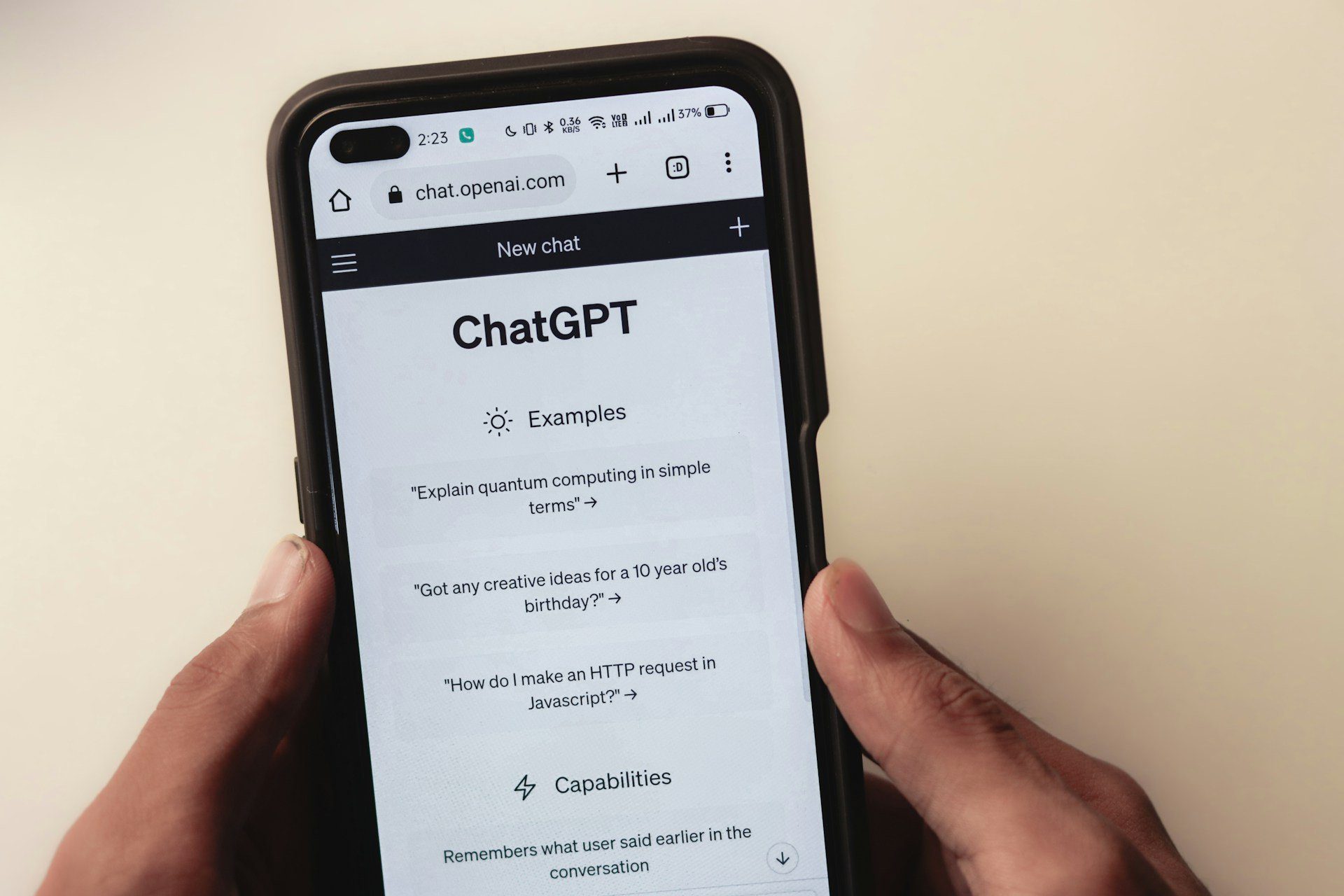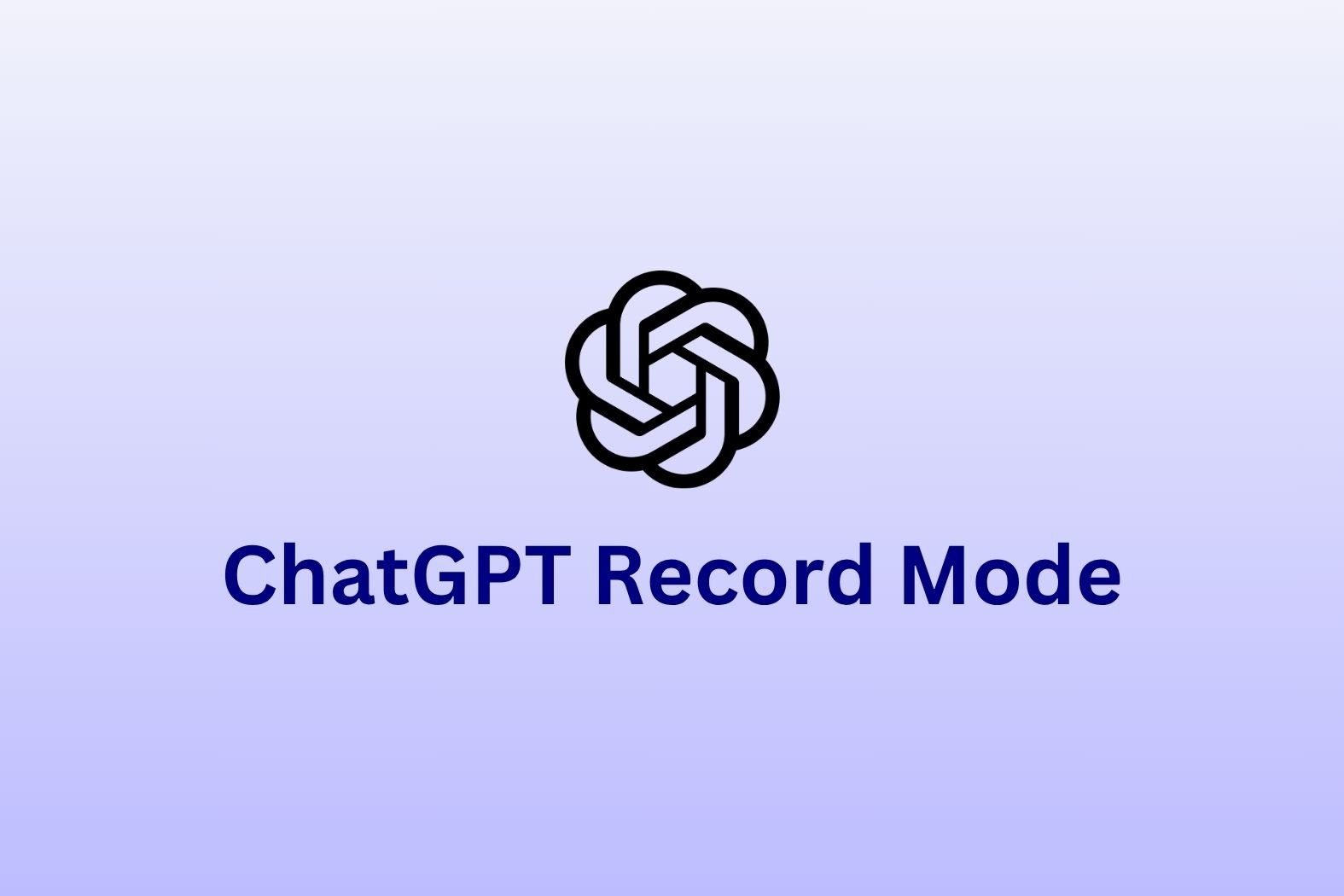Kein Produktentwicklungsprozess ist vollständig ohne eine wesentliche Komponente - die UX-Forschung. Nutzerbefragungen liefern dem Produktteam wertvolle Erkenntnisse und sind entscheidend für die Verbesserung des Produkts selbst.
Aber wie können Sie sicherstellen, dass Sie alle benötigten Informationen erhalten und keine Details im Gespräch mit Ihren Kunden übersehen?
In diesem Artikel werden wir die Vorteile der Verwendung von UX Research Meeting-Vorlagen für User Research Calls untersuchen und einige effektive Techniken zur Rationalisierung der Arbeit Ihres Produktteams diskutieren.
@tldv.io Keine Sorge, es war versichert. #benutzerforschung #tech #startup #ceo #uxdesign #uxresearch
♬ Originalton - tldv.io - KI-Meeting-Recorder
Was ist eine UX Research Meeting Vorlage?
Eine Vorlage für ein Forschungsmeeting ist eine Landkarte, die dem Produktteam hilft, von Punkt A zu Punkt B zu gelangen, ohne wichtige Details zu übersehen. Genauer gesagt, dient sie als strukturierter Rahmen mit einem Algorithmus, der die Routine Ihrer Nutzerforschungsgespräche rationalisiert und verbessert.
Forschungsmeetings enthalten in der Regel viele wichtige Details, die es schwierig machen, sie effektiv in einem umfassenden UX-Forschungsbericht zu organisieren. Mit Hilfe einer Meeting-Vorlage können Sie jedoch leicht durch die Interviews mit Ihren Nutzern navigieren und so den Stress oder die Angst, wichtige Informationen zu überhören, reduzieren. Schauen wir uns einige der üblichen Komponenten an, die häufig in UX-Forschungsvorlagen zu finden sind:
Hier sind einige der üblichen Abschnitte, die in UX-Forschungsvorlagen zu finden sind:
- Aufwärmen. In diesem Teil geht es darum, eine freundliche Atmosphäre zu schaffen, sich mit dem Benutzer vertraut zu machen und sicherzustellen, dass er sich wohl fühlt.
- Hintergrundprüfung. Die Ermittlung des Hintergrunds des Nutzers ist entscheidend für das Ergebnis des Gesprächs. Hier stellen wir normalerweise sicher, dass wir so viele Details wie möglich erfahren.
- Erforschung der Benutzererfahrung. Es ist an der Zeit, in die Materie einzutauchen und alles über die Erfahrungen Ihrer Nutzer zu erfahren: "Warum?" und "Wie?" sind hier die wichtigsten Fragen.
- Herausforderungen. Das ist die Phase, in der wir alles über die Schmerzpunkte des Nutzers und die "Ich möchte, dass es..." Dinge erfährt.
- Interaktion. In dieser Phase sollten wir unseren Nutzern die Möglichkeit geben, mit unserem MVP herumzuspielen oder ein Mock-up eines Produkts/einer Funktion zu erstellen, um die Interaktion zu sehen und zu verfolgen
- Nachbereitung. Wir fassen die wichtigsten Punkte zusammen und bringen zum Ausdruck, wie dankbar wir für die Hilfe sind (denn das sind wir wirklich!)
Warum sollten Sie Vorlagen für Benutzeranrufe verwenden?
Es gibt viele Gründe, warum die Einführung von Vorlagen Ihre Zeit und Mühe wert ist. Schauen wir uns einige an.
Straffes Gespräch mit Schwerpunktthemen
Die Schwerpunkte sind eine Checkliste für das Gespräch, die Ihnen dabei hilft, sich an alle wichtigen Dinge zu erinnern, die Sie fragen müssen: die Nutzung, das Verhalten und wie der Nutzer das Produkt im Allgemeinen empfindet. Manchmal kann es vorkommen, dass man abschweift oder bei einer Frage zu sehr ins Detail geht, aber diese Punkte helfen Ihnen, den Überblick zu behalten.
Ihre Vorlage ist auch hilfreich, wenn Sie Ihre Sitzungen aufzeichnen. Sie können bestimmte Teile des Gesprächs leicht wiederfinden, wenn Sie es später ansehen. Es ist wie ein Skript, das festhält, was während des Gesprächs gesagt wurde.
Ein einheitliches Format für die Erstellung von Notizen
Vorlagen bieten ein festes Format für Notizen während Besprechungen, ganz gleich zu welchem Zweck. Für Forscher helfen diese vorgefertigten Abschnitte, wichtige Erkenntnisse, Nutzerfeedback und Beobachtungen während des Gesprächs zu erfassen. So lassen sich die Daten später leichter analysieren und kombinieren, was zu einem besseren Verständnis der Bedürfnisse und Präferenzen der Nutzer führt.Zusammenarbeit zwischen Forschern
Die Verwendung von Vorlagen hilft den Forschern, besser zusammenzuarbeiten. Wenn alle dasselbe Format verwenden, ist es einfach, Ergebnisse auszutauschen und zu vergleichen. Diese Zusammenarbeit führt zu einer effektiveren Analyse der Daten. Die Verwendung einer virtueller wissenschaftlicher Mitarbeiter kann auch die Zusammenarbeit der Forscher untereinander und eine effizientere Analyse der vorliegenden Daten unterstützen.Bessere Entscheidungsfindung
Verwendung von Vorlagen für die Datenerfassung konsequent und umfassend zu nutzen, ist ein guter Weg, um klügere Entscheidungen zu treffen. Wenn die Teams wirklich verstehen, was die Nutzer wollen und brauchen, können sie Produkte und Dienstleistungen entwickeln, die die Menschen lieben werden.Vorlagen sind nicht nur für das Produktteam wichtig, sondern dienen auch als hervorragende Ergänzung für die Arbeitsabläufe der Marketing- und Vertriebsteams. Die Daten, die in den Vorlagen während der Nutzerbefragung gesammelt werden, können Unternehmen dabei helfen, bessere Strategien zur Lead-Generierung zu entwickeln und die Kommunikation mit Kunden durch die Verwendung der "Nutzersprache" zu verbessern. Der Einsatz einer Software zur Vertriebsbeschleunigung kann die Vertriebsprozesse weiter optimieren und damit die Nutzung Ihres Produkts steigern.
Zusammenfassend lässt sich sagen, dass die Verwendung von Vorlagen für Nutzerforschungsanrufe den gesamten Prozess reibungsloser macht und sicherstellt, dass Sie umfassende Daten sammeln, die für die Entwicklung und Verwaltung Ihres Produkts entscheidend sind.
Lassen Sie uns nun einen Blick auf einige großartige Beispiele für Vorlagen werfen, die Sie in Ihrer nächsten Besprechung verwenden können, so wie wir es versprochen haben!
Beste UX-Benutzerforschungs-Meeting-Vorlagen
Wir denken, Sie haben bereits verstanden, dass Sie als UX-Forscher die richtige Struktur für Ihre Forschungsanrufe benötigen, um wertvolle Daten zu sammeln und ein tieferes Verständnis für die Bedürfnisse und Präferenzen der Nutzer zu erlangen.Egal, ob Sie ein Webdesign-Unternehmen sind, das schon lange auf dem Markt ist, oder ein Start-up-Unternehmen, das gerade erst damit begonnen hat, sich den Weg zur Erforschung Ihrer Nutzer zu bahnen, im Folgenden finden Sie 5 Vorlagen, mit denen Sie sich vorbereiten und Ihren Aufruf wie ein Profi führen können:
- Vorlage für ein Benutzerinterview;
- Vorlage für einen Diskussionsleitfaden für Benutzerinterviews;
- Usability Testing Skript Vorlage
- Vorlage für Nutzerforschungsanrufe
Vorlage für Diskussionsleitfaden für Fokusgruppen (für Gruppenanrufe)
Lassen Sie uns die Leistungsfähigkeit dieser Vorlagen entdecken und erfahren Sie, wie sie Ihre User Research Meetings auf ein neues Niveau heben können!
1. Vorlage für ein Benutzerinterview
Betreff: Einladung zur Teilnahme an der Nutzerforschung
Hallo [Name des Teilnehmers],
Wir führen eine Nutzerforschung für [Projekt/Produktname] durch und würden uns über Ihre wertvollen Erkenntnisse und Ihr Feedback freuen. Ihr Input ist entscheidend für die Verbesserung der Benutzerfreundlichkeit.
Wenn Sie Zeit haben, würden wir gerne ein [remote/persönliches] Vorstellungsgespräch mit Ihnen für etwa [Dauer, z. B. 30 Minuten] vereinbaren.
Die Sitzung findet am [vorgeschlagene(s) Datum(e) und Uhrzeit(en)] statt.
Wenn Sie an einer Teilnahme interessiert sind, teilen Sie uns bitte Ihre Verfügbarkeit mit, und wir werden Ihnen weitere Einzelheiten und eine Bestätigung zusenden.
Vielen Dank für Ihre Aufmerksamkeit!
Mit freundlichen Grüßen, [Ihr Name]
2. Diskussionsleitfaden für Benutzerinterviews
Einleitung:
- Begrüßen Sie den Teilnehmer und geben Sie einen kurzen Überblick über den Zweck und den Ablauf der Untersuchung.
- Legen Sie die Erwartungen bezüglich der Dauer des Interviews und der Verwendung der Informationen fest.
Fragen zum Aufwärmen:
- Stellen Sie allgemeine Fragen, damit sich der Teilnehmer wohl fühlt und eine offene Kommunikation gefördert wird.
Die wichtigsten Fragen:
1. [Frage 1]
2. [Frage 2]
3. [Frage 3] ...
Fragende Fragen:
- Gehen Sie auf die Antworten des Teilnehmers ein, um tiefere Einblicke und Klarstellungen zu erhalten.
Nachbereitung:
- Fragen Sie den Teilnehmer, ob er weitere Kommentare oder Fragen hat.
- Danken Sie den Teilnehmern für ihre Zeit und ihren Beitrag.
Abschluss:
- Geben Sie Informationen über die nächsten Schritte oder mögliche Folgemaßnahmen an. Vielen Dank für Ihre Teilnahme!
3. Skriptvorlage für Usability-Tests
Einleitung:
- Stellen Sie sich selbst und den Zweck der Usability-Test-Sitzung vor.
- Erklären Sie das Format und alle relevanten Anweisungen.
Aufgabe 1:
- Beschreiben Sie die erste Aufgabe, die der Teilnehmer ausführen muss. - Geben Sie die Ziele der Aufgabe an, ohne Schritt-für-Schritt-Anweisungen zu geben.
Aufgabe 2:
- Beschreiben Sie die zweite Aufgabe und ihre Ziele. ...
Fragen nach der Aufgabe:
- Fragen Sie die Teilnehmer nach ihren Erfahrungen während jeder Aufgabe. - Fragen Sie nach Herausforderungen, denen sie begegnet sind, oder nach Verbesserungsvorschlägen.
Nachbereitung:
- Fragen Sie die Teilnehmer, ob sie abschließende Kommentare oder Rückmeldungen haben.
- Danken Sie den Teilnehmern für ihren wertvollen Beitrag. Vielen Dank für Ihre Teilnahme an unserem Usability-Test!
4. Vorlage für einen Nutzerforschungsaufruf
Einleitung:
- Stellen Sie sich und Ihre Rolle im Projekt vor.
- Erläutern Sie kurz den Zweck der Untersuchung und wie die Informationen verwendet werden sollen.
- Legen Sie die Erwartungen an die Dauer des Gesprächs fest (normalerweise [Dauer, z. B. 30 Minuten bis 1 Stunde]).
Hintergrundfragen:
- Stellen Sie allgemeine Fragen, um den Teilnehmer besser kennen zu lernen (z. B. seine Erfahrung mit dem Produkt, seine Rolle, seine Vertrautheit mit ähnlichen Tools).
Wichtigste Forschungsfragen:
1. [Frage 1]
- Erlauben Sie dem Teilnehmer, seine Gedanken offen mitzuteilen, und ermutigen Sie ihn, sie zu erläutern.
2. [Frage 2]
- Stellen Sie Folgefragen, um bestimmte Aspekte zu vertiefen.
3. [Frage 3] - Passen Sie die Fragen an die spezifischen Ziele der Untersuchung an.
Szenario/Aufgabe:
- Beschreiben Sie ein realistisches Szenario, das mit dem Produkt zusammenhängt, und bitten Sie die Teilnehmer, Ihnen zu zeigen, wie sie es angehen würden.
Benutzerfreundlichkeitstests (falls zutreffend):
- Wenn Sie Gebrauchstauglichkeitstests durchführen, geben Sie den Teilnehmern klare Anweisungen zur Verwendung des Produkts.
- Ermutigen Sie sie, während des Prozesses laut zu denken, um ihren Denkprozess zu verstehen.
Feedback und Vorschläge:
- Fordern Sie die Teilnehmer auf, Feedback, Vorschläge oder Probleme mitzuteilen, auf die sie bei der Verwendung des Produkts gestoßen sind.
Nachbereitung:
- Fragen Sie den Teilnehmer, ob er abschließende Kommentare oder Fragen hat.
- Danken Sie den Teilnehmern für ihre Zeit und ihren wertvollen Beitrag.
Nächste Schritte:
Erläutern Sie kurz, was als Nächstes im Forschungsprozess geschehen wird, und erwähnen Sie gegebenenfalls Folgeaktivitäten.
5. Leitfaden für Fokusgruppendiskussionen (für Gruppenanrufe)
Einleitung:
- Begrüßen Sie alle Teilnehmer und danken Sie ihnen für die Teilnahme an der Fokusgruppendiskussion.
- Erklären Sie den Zweck der Fokusgruppe und die Bedeutung ihrer kollektiven Erkenntnisse. Eisbrecher:
- Beginnen Sie mit einer leichten Eisbrecher-Aktivität, damit sich die Teilnehmer miteinander vertraut machen können.
Fragen zur Diskussion:
1. [Frage 1]
- Ermutigen Sie alle Teilnehmer, ihre Gedanken und Ideen mitzuteilen.
2. [Frage 2]
- Erleichtern Sie Diskussionen und sorgen Sie dafür, dass jeder die Chance bekommt, etwas beizutragen.
3. [Frage 3]
- Holen Sie unterschiedliche Perspektiven zu verschiedenen Aspekten des Themas ein.
Nachbereitung:
- Danken Sie allen Teilnehmern für ihre aktive Teilnahme und ihre wertvollen Beiträge.
- Fassen Sie die wichtigsten Punkte zusammen, die während der Telefonkonferenz besprochen wurden.
Nächste Schritte:
- Erläutern Sie kurz, was als nächstes im Forschungsprozess geschehen wird.

10 interessante UX-Forschungsfragen für Benutzerinterviews [Bonus]
Sobald Sie Ihre Vorlage angepasst und fertiggestellt haben, ist es an der Zeit, den furchteinflößendsten Teil des Prozesses in Angriff zu nehmen - Gespräche mit echten Nutzern! Aber keine Sorge, Interviews sind tatsächlich der angenehmste und wertvollste Aspekt des Prozesses der Nutzerforschungsanrufe.
Hier erhalten Sie alle wichtigen Informationen, um Ihr Produkt oder Ihre Dienstleistung zu verbessern. Alles, was Sie brauchen, sind die richtigen Interviewfragen für die UX-Forschung, um die richtigen Antworten zu erhalten. Wir haben 10 interessante Fragen zusammengestellt, die unserer Meinung nach erstklassig sind und Ihnen helfen werden, Ihre Interviews zu verbessern und noch mehr Erkenntnisse von Ihren Nutzern zu gewinnen
Wie sind Sie auf unser Produkt/die Dienstleistung aufmerksam geworden und was hat Sie dazu bewogen, es auszuprobieren?
Können Sie uns ein bestimmtes Erlebnis schildern, das Sie bei der Nutzung unseres Produkts/unserer Dienstleistung gemacht haben und das einen bleibenden Eindruck hinterlassen hat, entweder positiv oder negativ?
Welche Ziele verfolgen Sie mit der Nutzung unseres Produkts/unserer Dienstleistung in erster Linie, und wie effektiv ist es Ihrer Meinung nach, diese Ziele zu erreichen?
Sind Sie bei der Nutzung unseres Produkts/Dienstes auf Herausforderungen oder Schwierigkeiten gestoßen und wie haben Sie diese gemeistert?
Wie würden Sie in wenigen Worten Ihre allgemeine Erfahrung mit unserem Produkt/Dienst beschreiben?
Fallen Ihnen zusätzliche Funktionen oder Verbesserungen ein, die Ihre Erfahrungen mit unserem Produkt/Dienst noch besser machen würden?
Haben Sie unser Produkt/die Dienstleistung mit ähnlichen Angeboten auf dem Markt verglichen? Wenn ja, welche Faktoren haben Ihre Entscheidung beeinflusst, unser Produkt den anderen vorzuziehen?
Welche Aspekte unseres Produkts/unserer Dienstleistung finden Sie besonders attraktiv oder wertvoll?
Gibt es irgendetwas an unserem Produkt/Dienst, das Sie verwirrend oder schwierig zu navigieren finden?
Auf einer Skala von 1 bis 10, wie wahrscheinlich ist es, dass Sie unser Produkt/unsere Dienstleistung einem Freund oder Kollegen empfehlen würden, und welche Faktoren tragen dazu bei, dass Sie es empfehlen würden?
FAQ
Wie führt man ein UX-Forschungsinterview durch?
Für ein erfolgreiches UX-Forschungsinterview:
Legen Sie klare Ziele für Ihre Studie fest.
Finden Sie Personen, die zu Ihrer Nutzergruppe passen, und erstellen Sie eine Liste mit offenen Fragen, um das Interview zu leiten.
Planen Sie die Interviews und stellen Sie sicher, dass sich die Teilnehmer wohl fühlen.
Stellen Sie sich zu Beginn vor und bitten Sie die Teilnehmer um Erlaubnis.
Stellen Sie durchdachte Fragen und hören Sie ihnen wirklich zu.
Wenn Sie Usability-Tests durchführen, bitten Sie sie, laut zu denken, während sie das Produkt benutzen.
Bleiben Sie während des Interviews neutral und fair.
Respektieren Sie ihre Zeit und beenden Sie das Interview freundlich.
Analysieren Sie anschließend die gesammelten Informationen, um nützliche Änderungen an Ihrem Produkt vorzunehmen. Üben Sie weiter und seien Sie freundlich zu den Teilnehmern, um noch bessere UX-Forschungsinterviews durchzuführen.
Die besten Tools für User Research Meetings?
Zu den besten Tools für virtuelle User Research Meetings gehören:
- Zoom + TL;DV
- Google Meet + TL;DV
- Microsoft Teams
- Call-Center-Software.
Der letzte Punkt sollte Sie nicht überraschen. Große Unternehmen mit einem breit gefächerten Publikum können nach wie vor auf altbewährte Methoden zur Durchführung von UX-Interviews zurückgreifen, indem sie ihre Kunden über Festnetzdienste ansprechen, um effektiv mit ihnen in Kontakt zu treten.
Wie kann man AI-Tools für User Research Meetings nutzen?
Während der Besprechungen können Sie sich auf KI-Transkriptionsdienste verlassen, die automatisch Notizen über das Gesagte machen. Das spart viel Zeit und macht es mühelos möglich, wichtige Informationen zu finden, wenn Sie sie später brauchen. Darüber hinaus können KI-Tools auch zur Vorbereitung auf die Besprechung eingesetzt werden, indem sie beim Schreiben von E-Mails und der Erstellung von Tagesordnungen helfen.
Zusammenfassung
Vorlagen für UX-Forschungsgespräche spielen eine entscheidende Rolle bei der Durchführung von Nutzerforschungsgesprächen. Sie dienen als effektive Werkzeuge zur Organisation und Vereinfachung des Interviewprozesses und stellen sicher, dass keine wertvollen Erkenntnisse verloren gehen.
Gut gestaltete Vorlagen ermöglichen es Forschern, die richtigen Fragen zu stellen, wesentliche Aspekte zu erforschen und verwertbares Feedback von den Teilnehmern einzuholen. Mit Meeting-Vorlagen können Unternehmen ihre Nutzererfahrung verbessern, Produkte und Dienstleistungen optimieren und fundierte Entscheidungen treffen.














